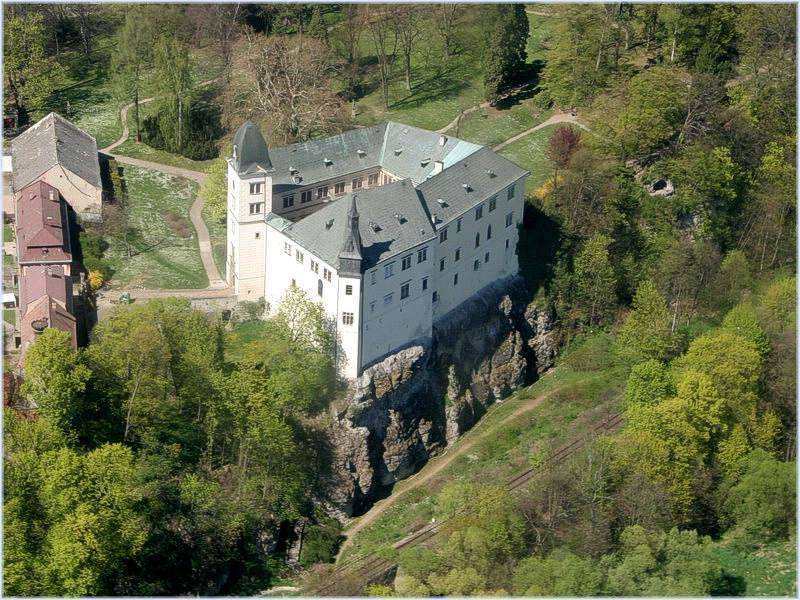Hrubý Rohozec Castle in Turnov, Semily region, which is in dispute together with forests and land PHOTO - Facebook
The complainant is the widow of Karl Des Fours Walderode. As his heiress, she seeks restitution of the property confiscated from him after the Second World War on the basis of Presidential Decree No 12/1945 Coll. on the confiscation and accelerated distribution of the agricultural property of Germans, Hungarians and traitors and enemies of the Czech and Slovak nation.
According to Act No. 243/1992 Coll., only persons who have been restored to Czechoslovak citizenship and who have not committed crimes against the Czechoslovak State may obtain restitution of property confiscated under the Decree.
The Supreme Court concluded that Karl Des Fours Walderode did not meet the conditions for restitution because his Czechoslovak citizenship had not been validly restored. Although the Czechoslovak Ministry of the Interior had already issued him a certificate of continued citizenship on 16 December 1947, according to the Supreme Court this was a null and void act which had no legal effect.
The District Court in Semily and the Regional Court in Hradec Králové, which were bound by the legal opinion of the Supreme Court, dismissed the plaintiff's claim on the basis of that opinion. The Supreme Court subsequently rejected her appeal.
The First Chamber of the Constitutional Court (Judge-Rapporteur Josef Baxa) overturned the decisions of the district and regional courts and the Supreme Court's order rejecting the appeal. It concluded that those decisions violated the complainant's right to judicial protection.
From a constitutional point of view, the Supreme Court's opinion that the act of the Czechoslovak Ministry of the Interior on the return of citizenship is null and void does not stand. The Ministry of the Interior was competent to decide on the return of citizenship under the express provision contained in Article 2(1) of Decree No 33/1945 Coll.
Furthermore, the Supreme Court based its conclusion that the act was null and void on only two formal defects. The act is, in its view, incorrectly described as a certificate, even though it should have been a decree under the regulations of the time, and it does not contain a statement of reasons. The Constitutional Court pointed out that, according to settled case-law, only serious defects of form can render an act null and void. The Supreme Court did not give any reasons why the incorrect designation of the act and the absence of a statement of reasons should be regarded as such a serious defect. The Supreme Court has therefore unjustifiably departed from previous case-law and has burdened its decision with arbitrariness.
The Constitutional Court found that the act of the Ministry of the Interior of 16 December 1947 was not null and void. In restitution proceedings, this decision on the restitution of citizenship can no longer be reviewed and must be relied upon. It also recalled that the complainant had sought restitution of part of her property in the past and had been successful in that case before the Supreme Court.
In the further proceedings, the courts will proceed on the basis that the act of the Ministry of the Interior of 16 December 1947 is not null and void and that this act decided to retain Czechoslovak citizenship. Those conclusions also prevail over the unconstitutional legal opinion expressed in the Supreme Court's judgment in cassation, even though that judgment could not be set aside on procedural grounds. It will be for the ordinary courts to address the fulfilment of the other conditions for restitution.
The ruling of the Constitutional Court, Case No. I. ÚS 854/23, is available at here.
usoud.cz/ gnews - RoZ_07



